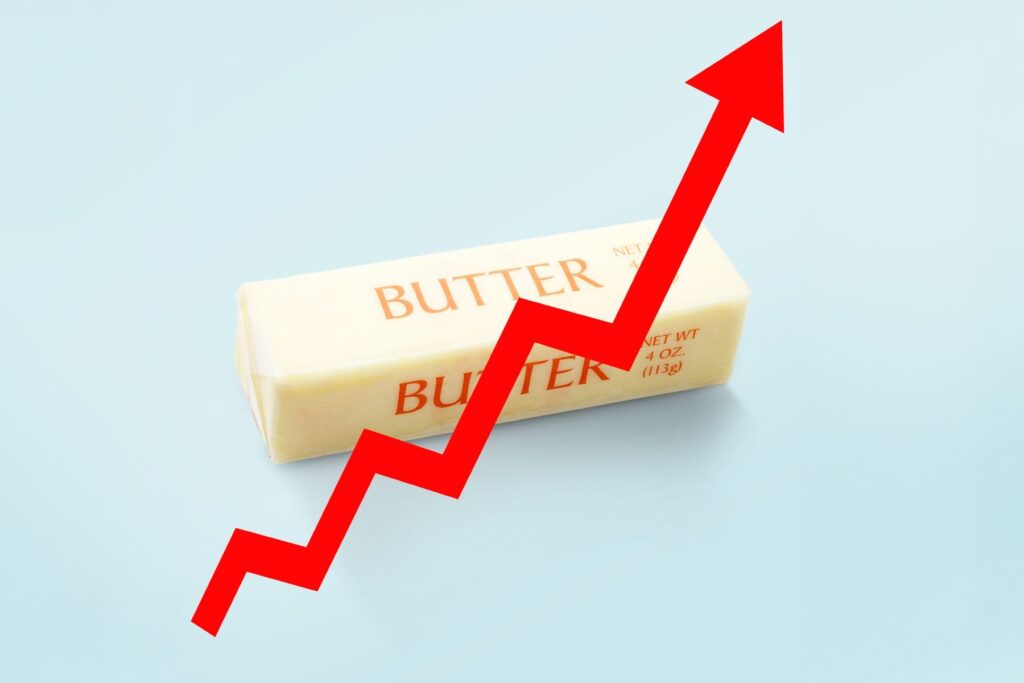
We’re approaching peak holiday baking season, and home cooks everywhere are drawing up their shopping lists for the rich, buttery recipes they plan to serve at Thanksgiving, Christmas and a dozen special occasions in between. But the grocery bill might be steeper in 2024 than in years past because the cost of butter will be high until 2025.
Why are butter prices so high?
Butter is made with the fat from milk and cream, so its production requires lots of milk. But there isn’t enough milk to meet the rising global demand. Reuters explains that the global milk supply has declined in part because diseases have impacted herds of dairy cows in Europe. There’s also the issue of the high cost of cow feed, which similarly fueled warnings about butter shortages in 2023.
Furthermore, while lots of milk is needed to make butter, milk is also required for all kinds of other popular, mass-produced grocery staples, including cheese—and cheese has historically been a more profitable route for dairy producers, so they divert more milk toward making cheese than butter. Because more people need butter for holiday baking than any other time of year, low butter supply and high butter demand equal expensive butter.
At this point, since butter prices have risen to become roughly on par with those of cheese, more dairy producers might start allocating milk to the production of additional butter. If that happens, then the increase in supply would ease butter prices. But that process could take months, and shoppers aren’t likely to see a dip in prices until next year.
What can I do about it?
Since the price of butter isn’t likely to come down anytime soon, pounce on a good deal when you find it. Grocery stores will often place items on sale that they’re trying to offload in advance of the sell-by date, meaning you can pick up reasonably priced butter and freeze it for future use. Remember, butter freezes well and stays good for 6 to 12 months when frozen. Just remember to thaw it in the refrigerator before using.
You might be tempted to skip butter altogether and go straight for its less expensive cousin, margarine. But due to its lower fat content, using margarine in baked goods might mess with the recipe It’s best to use margarine only as a less flavorful additive in other cooking projects.



